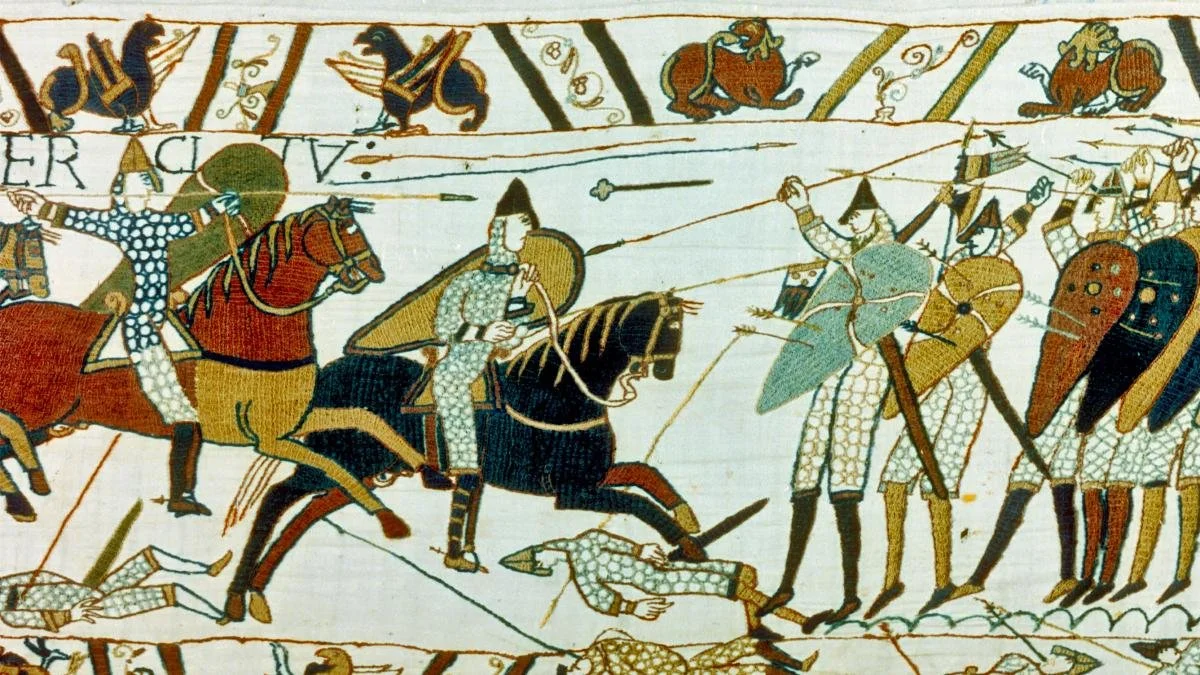Storytelling is the new real estate super skill
Bayeux Tapestry - 11th Century
Why is someone going to buy, lease or rent your real estate? Do they have to? If the answer is yes then you can stop reading now.
Historically the above question would have led to 95% of people stopping reading. Because historically our customers, in most situations, had to buy, lease or rent our real estate. It’s why real estate has made so many people so wealthy over the centuries.
But today, our customers most likely do not need to do business with us. If Covid has taught us one thing it is that people really can shop and work without shops or offices. They have optionality, as economists say. There is no longer an absolute need to go anywhere to shop or work.
In his Essays, written in 1625, Francis Bacon wrote ‘Mahomet cald the Hill to come to him. And when the Hill stood still, he was neuer a whit abashed, but said; If the Hill will not come to Mahomet, Mahomet wil go to the hil.’
Well today, the mountain will willingly come to Mohammed….
Which leaves those of us active in the office market with a problem. How do we get people to buy or lease our offices?
Answering that question people in real estate tend to jump to the wrong conclusion. Or at least jump to a conclusion without considering exactly why it makes sense. They immediately draw up a list of new amenities, or features, to add to their buildings. We need to add this or offer that. In the same way that second rate computer or car manufacturers add endless bells and whistles in the plaintive hope that the fundamental weakness of their product will go unnoticed.
This will never work. In a real estate world that has been turned upside down, where we have to make people want to come to us, because they no longer need to, you have to start with the customer and work back to the real estate.
You have to become a story teller. You have to obsess about what it is that you can offer your existing customers, or the customers you are trying to attract, that will make them feel like they are missing out if they do not spend time in your spaces and places. Though it goes against the received wisdom of the real estate industry, your most important job going forward is to create and curate your companies Brand. Yes, that thing that you probably learnt does not apply to commercial real estate, actually applies more than anything else. Without a powerful Brand you’ll be consigned to the hell of being a low margin, interchangeable provider of commodity space.
And Brands are all about story telling.
Great Brands represent great stories. They have meaning to their customers. Their ‘story’ evokes pleasure, pride, greed, avarice. The Hermes ‘Birkin’ handbag is an an example of what is known as a Veblen good; something that gets more desirable the more the price is raised. Primark, the retailer, work at the other end of the scale, where their clothes become more desirable the cheaper they get. Disposable fashion to eternal fashion. Both tell great stories.
Most analogous for real estate, I think, are the premium car Brands. The most important customer for Audi, BMW or Mercedes is the person buying their first premium car. Because, like the Jesuits, once they’ve got you you’re likely to stay. People buy into brands like this. They buy into a certain style, a certain user experience, and certain ethos. And they invest more than money into them. They start to become, to an extent, defined by them. I am this ‘type’ of person.
And even these super powerful brands are wilting under the fire power of the greatest story teller of modern times, Elon Musk and his mega Brand Tesla.
In real estate we are going to see the development of Brands, across all asset types, as powerful as all of these. In offices, the operator of the space is going to become as important as the operator of a hotel, and companies and individuals will become loyal to particular brands. Because particular brands stand for particular user experiences, different ‘end to end’ stories, and over time will know how I want my space set up. It will be hard to wean a customer off a competitor who knows them much much better than you do. It’ll be like trying to get an iPhone user to switch to Android, or vice versa. The switching cost will just be too high.
The same applies for residential, retail, industrial … all asset classes. Remember, we are no longer just selling hardware (dumb boxes) - we are adding digital layers of software and services on top of this hardware. We are, via our human and technological skills, building stories around our buildings.
Modern economies are increasingly valued based on their intangible assets. Our Brand, our story, our user experience, these are our intangible assets.
Ultimately UX will equal Brand, and Brand will equal Value.
What’s your story?
